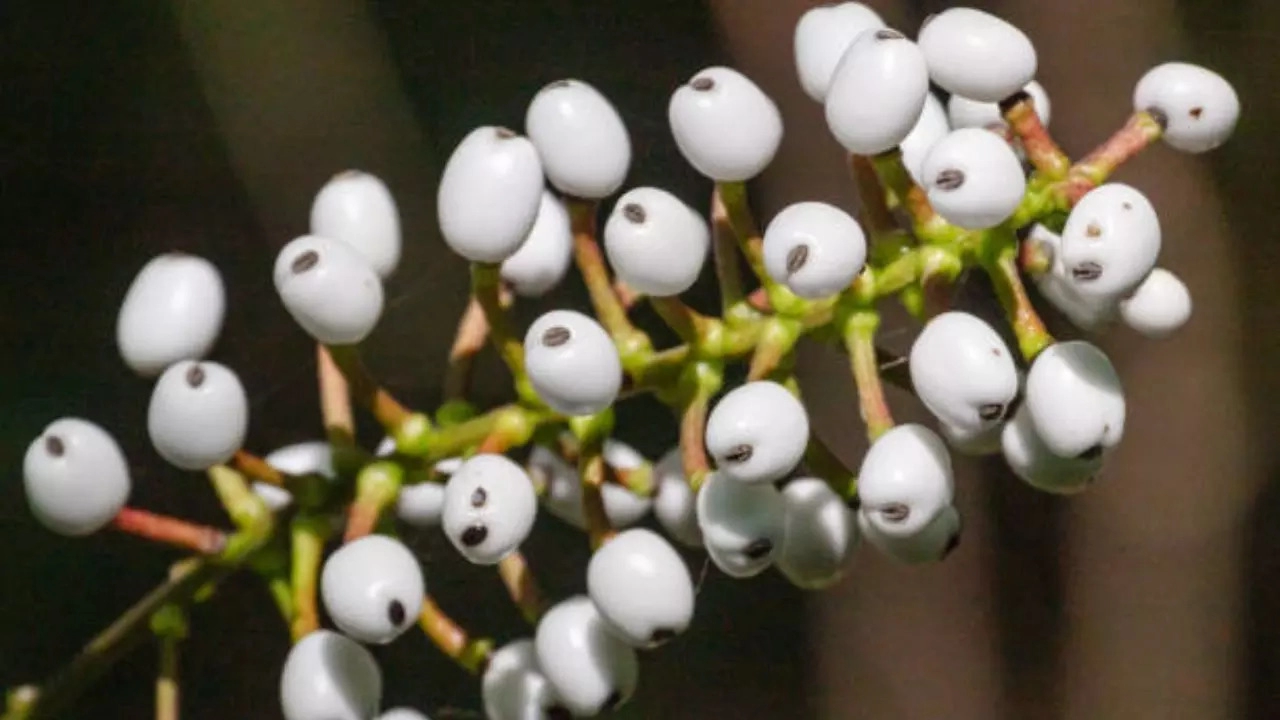
National Park rangers say birds and animals also nosh on the ghoulish berries but remain unaffected by the toxins, however, it is highly poisonous to humans
A highly poisonous plant – known as baneberry has prompted the US National Park Services to issue warnings to the public not to go closer or consume its toxic vegetation – as it can be detrimental to health.
According to news reports, park rangers have been making door-to-door visits advising people to stay away. “Is that plant looking at me?” the National Park Service wrote on various social media websites alongside a photo of a white baneberry plant – also known as doll’s eyes - whose fruits resemble eyeballs.
“Actaea pachypoda, the white baneberry or doll’s-eyes, is a species of flowering plant of the family Ranunculaceae,” the agency explained. “The plant’s most striking feature is its fruit, a 1 cm diameter white berry, whose size, shape, and black stigma scar give the species the name, ‘doll’s eyes.'”
Why is the baneberry plant dangerous?
According to the park rangers, birds and animals also nosh on the ghoulish berries but remain unaffected by the toxins; however, it is highly poisonous to humans and can result in:
- Nausea and vomiting
- Pain in the mouth
- Recurrent vomiting
- Severe stomach cramps
- Delirium
Doctors say even though death is rare - but is possible if you consume the berries in large quantities, as the cardiogenic toxins in the baneberries can affect your cardiovascular system, leading to irregular heart rhythms, and potentially - fatal heart failure. According to experts, when ingested, the berries instantly lead to sedative effects on the human heart. However, the berries are extremely bitter, and the curious diner may not likely eat enough for this to happen.
All about the plant
According to experts, the plant primarily grows in areas of woodland in the US, as well as in fields or on the side of the road, and ripens during the mid-to-late summer. The white baneberry plants have earned the vegetation the nickname of “doll’s eyes,” but baneberry can also feature bright red bulbs.
Get Latest News Live on Times Now along with Breaking News and Top Headlines from Health and around the world.
